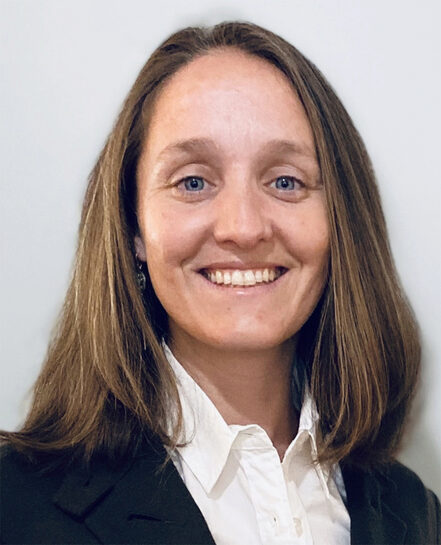October 4, 2021
The Gordon and Betty Moore Foundation has named Marta Hatzell, Associate Professor in the George W. Woodruff School of Mechanical Engineering at the Georgia Institute of Technology, a 2021 Moore Inventor Fellow. Hatzell and four other fellows will each receive $825,000 to further the development of new tools and technologies that promise to accelerate progress in the foundation’s areas of interest: scientific discovery, environmental conservation and patient care. The fellowships honor Silicon Valley pioneer and Intel co-founder, Gordon Moore.
The 2021 Moore Inventor Fellows are:
- Gozde Durmus, Ph.D., Stanford University School of Medicine
- Shyam Gollakota, Ph.D., University of Washington
- Marta Hatzell, Ph.D., Georgia Institute of Technology
- Max Shulaker, Ph.D., Massachusetts Institute of Technology
- David Van Valen, Ph.D., Caltech
“Bold ideas can change the world,” said Harvey V. Fineberg, M.D., Ph.D. “These young inventors have compelling projects that, if successful, will make a real difference. Providing them with the time and resources they need to pursue these aims is a great investment in the future.”
While their backgrounds and fields vary, the five fellows share a common passion for transformative ideas. The new cohort propose creating a portable laboratory platform to measure antibiotic sensitivity in harmful microbes; small-scale deployable wireless sensors to detect conservation challenges; a system to convert air into a liquid ammonia-based fertilizer; an electronic chip to improve hospital diagnoses; and new methods to track multi-color spatial patterns in living cells.
Hatzell’s invention creates fertilizer from nitrogen in the air. It is a low-cost photocatalytic air breathing system that converts air into liquid ammonia-based fertilizers. Her solar fertilizer technology has the potential to become a low-cost and widely dispersed approach for manufacturing ammonia fertilizers in rural settings. It offers a promising solution to reduce carbon emissions associated with current fertilizer industry practices; reduce nitrogen waste at agricultural sites; and boost agricultural productivity.
"Our team is very grateful for the support provided through the Moore Inventor Fellowship,” said Hatzell. “The fellowship provides a unique opportunity to pursue high risk-high reward research. Our long-term goal is to develop modular solar driven systems, which enable farm-scale fertilizer production."
Prior to starting at Georgia Tech in August of 2015, Hatzell was a Post-Doctoral researcher in the Department of Material Science and Engineering at the University of Illinois - Urbana-Champaign. During her post doc, she worked in the Braun Research group on research at the interface between colloid science and electrochemistry. She completed her PhD at Penn state University in the Logan Research Group. Her PhD explored environmental technology for energy generation and water treatment. During graduate school she was an NSF and PEO Graduate Research Fellow.
The $825,000 award supporting these projects includes $675,000 over three years from the foundation and $50,000 per year from their home institution. The inventors will also become part of a network of other awardees and will receive additional guidance from Activate.org, which helps bridge the gap between laboratory research and the market.
“We cannot know in advance that an invention we support will change the world.” said Robert Kirshner, Ph.D., chief program officer for science at the Moore Foundation. “Yet these inventors and their ideas show great promise in areas our foundation supports.”
Launched in 2016 to celebrate the fiftieth anniversary of Moore’s Law, the revolutionary prediction that anticipated the exponential growth of computing power, the fellowship embraces the spirit of Gordon Moore’s passion for science and honors his penchant for inventing. To nurture the next generation of scientist-inventors, the foundation plans to name a total of fifty Moore Inventor Fellows – five fellows per year for ten years – allocating nearly $34 million to their innovative projects.
This year, the foundation received nearly 200 nominations from 123 eligible institutions. In addition to the five selected fellows, five additional finalists received $25,000 each. Nominations for the seventh cohort to be announced in 2022 are open through December 13, 2021. To determine eligibility and learn more about the application process, please visit moore.org/inventors or email inventors@moore.org.

